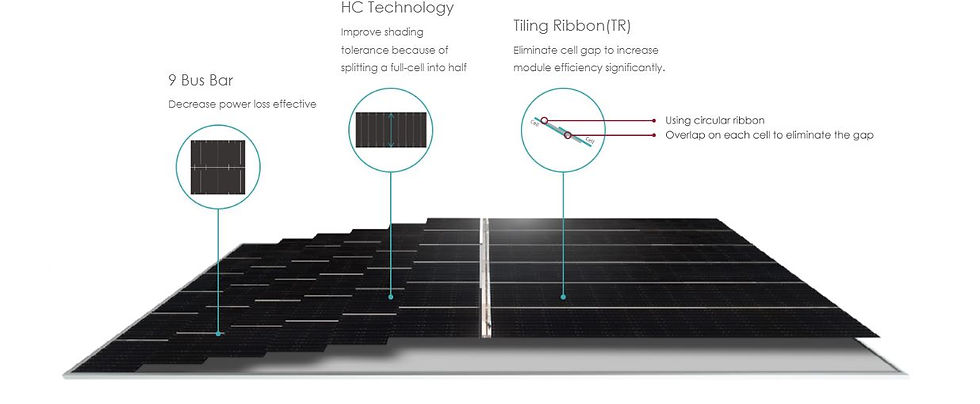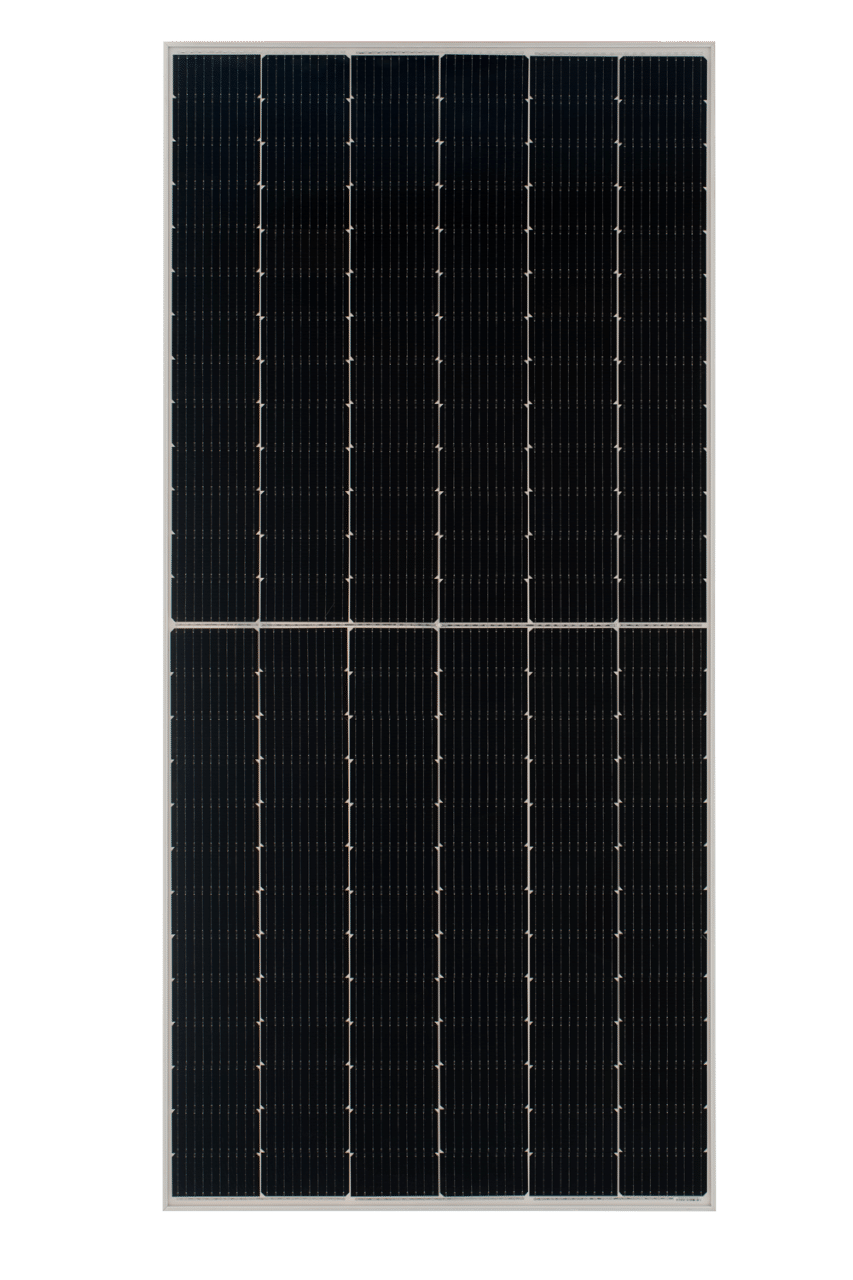A Complete Review of Jinko Solar Panels
- SolarKobo

- Aug 23, 2021
- 6 min read
Updated: Feb 15, 2022
SolarKobo Score: 4.1/5 Stars
Manufacturer's Profile
The makers of Jinko Solar modules JinkoSolar Holding Co., Ltd. was founded in 2006. It is headquartered in Shanghai, China with more than 15,000 employees in 70 countries and manufacturing facilities in nine countries including China, Malaysia and the US. It became listed on the New York Stock Exchange in 2010. Since 2016, Jinko Solar has been the world's largest solar panel manufacturer. In 2020, it shipped between 18.5GW to 19GW of solar panels.
Ranked a Tier 1 company by Bloomberg for its bankability, Jinko Solar stands very close to the small circle of premium brands highly regarded for their high performance. These premium brands include SunPower/Maxeon, Panasonic, LG and REC Solar. (There are those who consider Jinko Solar a premium brand for its performance if not for its warranty offering.) Jinko Solar has a strong reputation in the industry for its focus on research, performance and durability testing and quality control. Though guaranteeing the highest performance available anywhere in the world, Jinko Solar panels are mid-range in price making them cost-effective options for high-performance solar modules. The reason is obviously because like most Chinese manufacturers, they are driven towards the mass market rather than the premium market.
The Solar Shop Limited is an authorised dealer in Jinko Solar modules. It has its office at 273A Kofo Abayomi Street, Victoria Island, Lagos.
Range of Panels
Jinko originally made the mono and poly panels in the 60-cell and 72-cell module sizes. But like major manufacturers, Jinko has transitioned to mono PERC cells and the half-cut cell technologies. Jinko also offers bifacial solar panels. Read about the different types of solar panel technologies here.
Jinko's modules come with in-built optimisers. The Eagle SE panels incorporate SolarEdge DC optimisers while their Eagle MX panels incorporate Maxim Integrated optimizers. (Read all about solar optimizers here.)
Jinko Solar offers a wide range of solar panels for residential and industrial uses in the following series in its range of solar panels.

EAGLE SERIES
The Eagle series is Jinko's traditional, most affordable and most popular model range.
1. Eagle 60 and 72
Modules in this sub-series of Jinko's Eagle Series come in two output rating: 60-cell module with an output up to 280W, (Eagle 60) and a 72-cell module with a power output of up to 330W (Eagle 72). Aside the difference in output ratings, they both share the same characteristics. Jinko's panels in this series are polycrystalline panels. Poly modules are generally cheaper than monocrystalline, but less efficient.
The panels in this sub-series integrate a SolarEdge DC optimizer. They come with a 12-year product warranty and a 25-year linear performance warranty.

2. Eagle MX and Eagle SE
The Eagle MX and SE are polycrystalline solar panels that comes in a 60 and 72-cell model. They include 5 busbars to help lower their temperature coefficient and lead to higher efficiency. Although these panels are made from polycrystalline solar cells, they appear black in colour. In terms of power output, the 60-cell has up to 280W and the 72-cell has panels with output ratings up to 335W. Their efficiencies are 17.11% and 17.26%, respectively.
Apart from their appearance and slight difference in efficiency, these two panels are very similar to the base Eagle 60 and 72 models.

3. Eagle PERC 60, PERC 72
The panels in this sub-series are monocrystalline panels made with PERC cells. They use a multibusbar technology (4 busbars) to improve the efficiency of modules while offering a better aesthetic appearance and making it perfect for rooftop installation. (Read about the types of solar panel technology here.) The PERC technology used in their manufacture gives them the benefit of a higher efficiency (up to 18.57% for PERC 72 and 18.33% for PERC 60) than the MX and SE.
They come with advanced glass and solar cell surface texturing that allow for excellent performance in low-light environments.

4. Eagle Dual 60 and 72
The main difference between the Eagle Dual and the other Eagle models is that the Eagle Dual modules includes a dual-glass design with the goal of lowering degradation rates and increasing the panel’s annual and lifetime energy production. They are also designed for high voltage systems of up to 1500DC.
In a dual or double-glass solar panel, their rear side, which is often a traditional white plastic backsheet is replaced with a glass sandwich. This glass sandwich is by far superior because glass is more stable, nonreactive, is UV-resistant and has a longer lifespan. The result of the upgrade is an annual power degradation rate of 0.5% in comparison with most solar panel's degradation rates of up to 1% per year.
The two dual-cells have efficiencies of 17.33% and 17.26% for the 60 and 72 cells respectively. They comes with a 30 year performance warranty with degradation at 1% in the first year and 0.4% annually until year 30, and a product warranty of 15 years.

CHEETAH SERIES
Except for the Cheetah HC 60 and Cheetah HC 72 which uses a half-cut technology, the other two modules in the Cheetah Series, the Cheetah 60 and Cheetah 72 use 5 busbar cells, a new efficiency-increasing technology while offering a better aesthetic appearance than traditional modules. Their excellent Anti-PID performance guarantee limited power degradation for mass production. They also come with an advanced glass and cell surface textured design that ensures excellent performance even in low-light. Panels in Jinko's Cheetah Series have efficiency ranging from 19.67% up to 20.74%.

Jinko guarantees that its Cheetah series of panels will still maintain the standard 12-year product warranty and 25-year performance warranty, with 83.1% minimum power output, or roughly 0.6% degradation per year.
SWAN BIFACIAL SERIES
The two modules in Jinko's Swan Bifacial Series, the HC 60M and HC 72M uses a half-cut technology and 5 busbar solar cell. They are designed for high voltage systems up to 1500V. Due to their low annual degradation rate, 0.55%, Jinko offers a 30-year linear power warranty.

TIGER SERIES
In this series of new generation solar panels, Jinko offers a 475W cell in a monofacial and bifacial designs at efficiency ratings of 21.16% and 20.65% respectively. They are rated from 360W to 470W.
These new generation panels feature many of the latest innovations in solar cell technology including larger format cells, multi-busbar (MBB) with 9 thin wire busbars and a proprietary technology by Jinko, the Tilling Ribbon or TR for short. The Tiling Ribbon overlaps the solar cells to eliminate gaps between them and increase overall cell coverage and in turn, increase efficiency. To achieve this, Jinko use a unique pressing process to join the thin wire busbars together. Traditional flat ribbon busbars shade parts of the cell reducing its performance, but when multiple round wire busbars are used instead, they provide lower resistance and a shorter path for the electrons to travel along the fingers, resulting in higher performance.

This innovative technology has the added benefit of reducing the overall cost of manufacture of the panels and with it the market cost of the product. It also eliminated the need for soldering which dopes the cells with traces of lead. The overall result of these innovations is higher performance, improved reliability, and increased efficiency.
The Tiger Series come with a significant upgrade in design and shift in traditional standard. Instead of the traditional 60/72 cell per panel, the Tiger Series come with 66 and 78 cells. This was capable due to the Tiling Ribbon design affording the chance to add another row of cells resulting in a slightly larger size panel and increased panel voltage.
Modules in the Tiger Series are available in two main types; the P-type silicon base with 9 MBB TR 66-cell design and the N-type silicon base with 9 busbars MBB TR design in new 78-cell format to achieve an efficiency of up to 20.9%.

TIGER PRO SERIES
In May 2020, Jinko unveiled the TIGER PRO Series, a high-power module series that can generate maximum power output of up to 580W, 40% higher than current maximum output power of panels installed in utility projects. In addition to their unparalleled power generation performance and outstanding output temperature coefficient, other advantages of the Tiger Pro module series include lower power attenuation rate (at 2% for the first year) and better open-circuit voltage.
The Tiger Pro module series uses multiple solar cell technology innovations across three flagship models. The Tiger Pro Series use a multi-wire 9BB and TR tiling ribbon technology to reach significantly improved performance with conversion efficiency up to 21.6%.
Jinko offers a 25-year warranty on its Tiger Pro Series panels.
Jinko began the mass production of the Tiger Pro Series in the third quarter of 2020. The series is expected to lead the development trend of the industry, and become a mainstream choice for utility scale projects. Along with the Tiger Series, it is also expected to dominate Jinko's market share by 2022.

Warranty
The older series are guaranteed by Jinko Solar for up to 12 years. The Tiger panels are the first from Jinko Solar to be backed by a new 15 or 25 year product warranty and extended 30 year performance warranty. Jinko guarantees that its high-purity Tiger panels will still operate at a minimum of 83.1% to 87.4% of the rated power after 30 years. The product warranty is the normal 12 years.
A staple in the Nigerian market, Jinko is highly regarded by players across the board for its quality and durability. It is a time-insured investment that offers high-performance panels at a mid-range price. They are one of the best choices for potential buyers. Jinko receives an average score of 4.1/5 stars from SolarKobo. We are always happy to recommend it to our clients.
SolarKobo helps its clients make the best choice of solar panels and other solar electricity products. We also have university-trained engineers that offer the best installation on order anywhere in Lagos and throughout Nigeria.




Comments